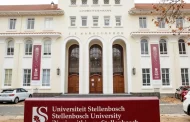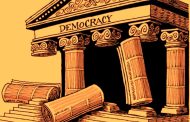The Nigerian Institute of International Affairs, (NIIA) has scheduled a seminar on the “Russian-Ukraine War and the Imperatives of a New Global Order”. While those who are close to its operational base in Lagos could take the in-person option, those who are not have the option of joining via the zoom facility. The date, according to NIIA’s notice to that effect, is Wednesday, March 9th, 2022 at 2pm, local time.

Amb Kimani of Kenya and his own lens
It is not out of place to expect the NIIA seminar to be a watershed! Already, critical observers are saying that the war in Ukraine has exposed the ugly underbelly whereby much of Nigeria is still either not aware or doesn’t accept the idea that there has been a historical break in social though in favour of truth as perception rather than anything objective. Truth as a text makes dangerous the culture of endless downloading and consumption of narratives, theories, concepts and insights on the war in Ukraine by other text producers which is what majority of Nigerians are doing. The war has thrown majority of the active citizens into a downloading frenzy, even among scholars. Although every material downloaded is re-interpreted by each reader, the question is whether it is what should be the case in any country that aspires to be taken seriously.

The Economist saying different things over a same issue
At the moment, it is not possible to know what lens of the war in Ukraine will predominate at the seminar. The point, however, is that whichever view predominates, it carries the Nigerian reflexivity which is very important since no two countries experience the world the same way. Even countries that are poor and powerless do not experience poverty and powerlessness the same way. Hence, the strategic importance of generating and circulating the perception and views of all different actors or players in the international order. It is not every such views that could become consensual or hegemonic but there is no science which can determine which views or perception will become hegemonic or not ahead of its articulation. It is not the case that the ideas of the ruling class, in this case, powerful countries, are always the ruling ideas. If that were the case, then counter-hegemonic victory would not have been possible. For that reason, African countries need to articulate their views on war in Ukraine.

Dr Yusuf Bangura
So far, only two views have emanated from leading African scholars. Prof Tiyambe Zeleza who wrote Europe at War: The Specter of Competing Imperialisms appears not to have finished that essay as some critics are waiting for him to defend the post-colonial war explanatory model he fancied. It is interesting that none of the neo-realists who have spoken on the war supports this position. Neither Kissinger nor John Mearsheimer has purchase for that explanatory model and those two are the defining voice in the conservative spectrum of the international relations theory business. It will be surprising if any poststructuralist voice will accept Zeleza’s opinion in spite of the affinity between poststructuralism and postcolonial thinking.
The second African voice that has been heard on the war is that of the structuralist, Dr. Yusuf Bangura. By the title of his piece, Russia’s invasion of Ukraine: What does it mean for Africa? Dr. Bangura set out to look at the conflict from an African lens. That alone could be argued to have taken away whatever anyone considers to be shortcomings of the piece because it satisfies the requirement that every theory is for someone and for some purpose.
There might have been other African views, especially in the metropolitan media but these two would appear to be most circulated so far. That is if we discount the position by Ambassador Martin Kimani, the Permanent Representative of Kenya to the United Nations because many are frowning at the comparison he drew between the border politics in Africa and the border dimension in the Russia – Ukraine situation.




























